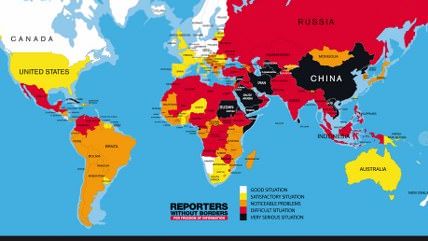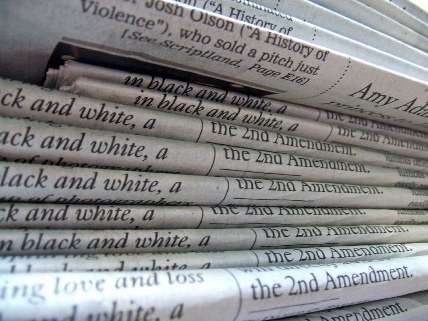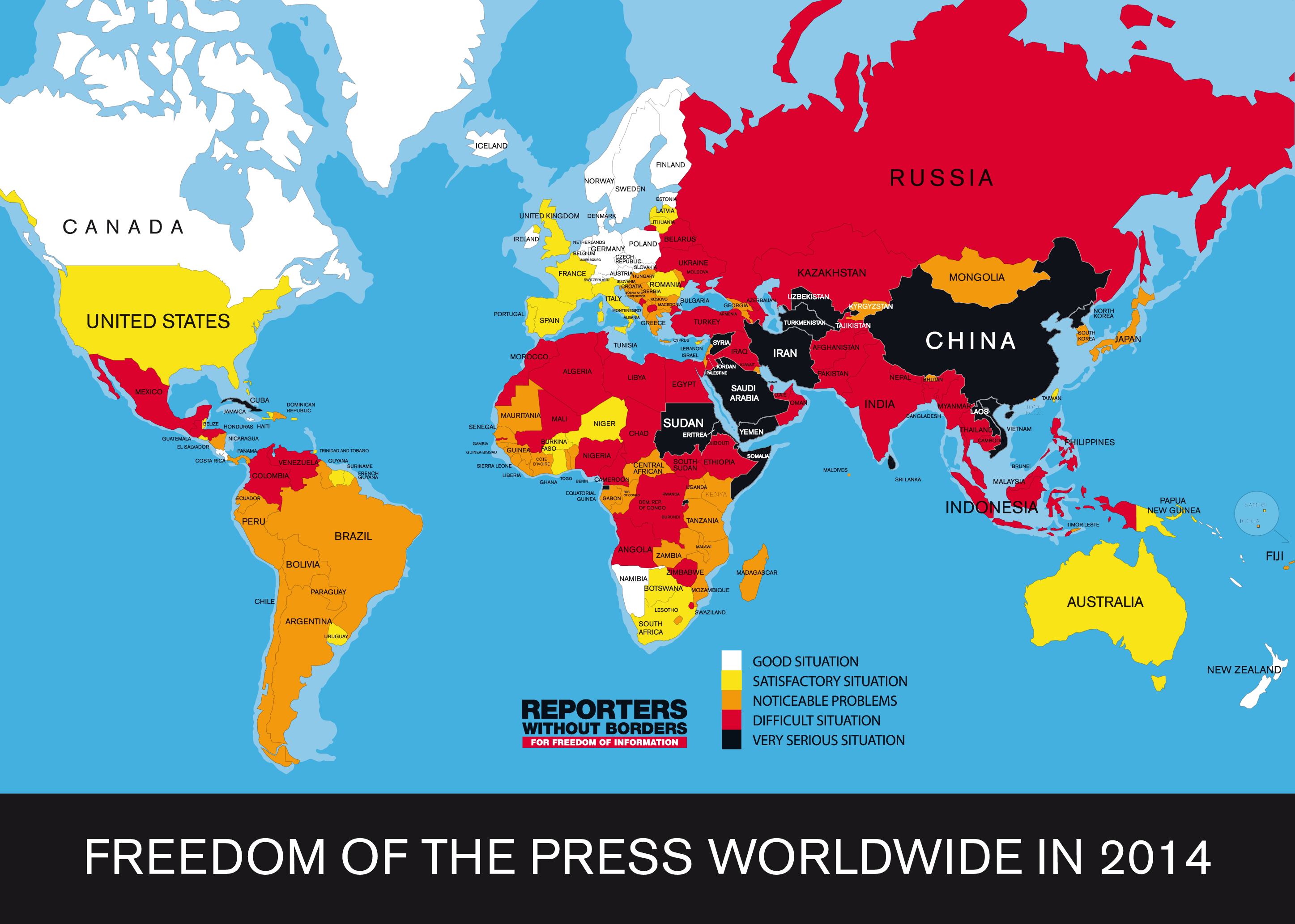U.S. Slides 13 Spots on Press Freedom Index


If it wasn't enough to see the United States slide in four rankings of economic freedom, Internet liberty, and government transparency last year, the Land of the Brave and Home of the Free (except where prohibited by law) is off to a swell start in 2014 by slipping 13 places on the World Press Freedom Index. Compiled by Reporters Without Borders, the Index keeps a running tally of governments' respect for journalistic freedomson matters ranging from legislative restrictions to outright whacking of reporters. The U.S. has taken a hit largely from the post-9/11 insistence on fetishizing claims of "national security" (Rep. Mike Rogers now wants to criminalize the publication of sensitive information like that released by Edward Snowden) and from the Obama administration's crusade against whistleblowers.
As the Index puts it:
Countries that pride themselves on being democracies and respecting the rule of law have not set an example, far from it. Freedom of information is too often sacrificed to an overly broad and abusive interpretation of national security needs, marking a disturbing retreat from democratic practices. Investigative journalism often suffers as a result.
This has been the case in the United States (46th), which fell 13 places, one of the most significant declines, amid increased efforts to track down whistleblowers and the sources of leaks. The trial and conviction of Private Bradley Manning and the pursuit of NSA analyst Edward Snowden were warnings to all those thinking of assisting in the disclosure of sensitive information that would clearly be in the public interest.
US journalists were stunned by the Department of Justice's seizure of Associated Press phone records without warning in order to identify the source of a CIA leak. It served as a reminder of the urgent need for a "shield law" to protect the confidentiality of journalists' sources at the federal level. The revival of the legislative process is little consolation for James Risen of The New York Times, who is subject to a court order to testify against a former CIA employee accused of leaking classified information. And less still for Barrett Brown, a young freelance journalist facing 105 years in prison in connection with the posting of information that hackers obtained from Statfor, a private intelligence company with close ties to the federal government.
The U.S, isn't the only backslider on the Index. France and the U.K. also lost position, though not by as much as the U.S. The European Union, as a whole, is suffering because "Membership negotiations are no longer necessarily accompanied by efforts to increase respect for civil liberties." As a result, several governments have taken advantage of a lack of outside pressure to crck down internally.
By contrast, Finland, the Netherlands, and Norway top the Index in first, second, and third places respectively. Of Finland, the Index notes the first-place ranking despite rarely enforced laws that criminalize defamation, including potential imprisonment of journalists, in certain circumstances. For perpetual complainers about "corporate news," the index also notes that, even though three companies dominate Finland's media, "there is a great deal of media pluralism despite the concentrated ownership."
Turkmenistan, North Korea, and Eritrea do a swell job of anchoring the last three places on the Index.



Show Comments (105)